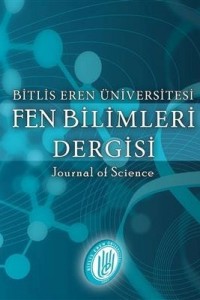Abstract
Bu
çalışmada, farklı lokaliteler dikkate alınarak Nevşehir ilinden toplanan
Gnaphosidae familyasına ait Drassodes
lacertosus türünün karyolojik özellikleri ilk kez araştırılmıştır. Kromozom
preparatlarının elde edilmesinde, Pekâr ve Krâl (2001) yöntemine göre klasik
giemsa boyama protokolü uygulanmıştır. Türün diploid kromozom sayısı 2n♂= 22 ve
eşey kromozom sistemi X1X20 Otozomların ve eşey
kromozomların morfolojisi telosentrik tipte bulunmuştur. Otozomal kromozomların
relatif uzunlukları % 9,46- 6.90 arasında kademeli olarak bir azalış
gösterirken; eşey kromozomlarının relatif uzunlukları X1= % 10, 76 ve X2=% 6.67 olarak
tespit edilmiştir. Mayoz bölünmenin profaz 1 ve metafaz 1 evrelerinde eşey
kromozomları, pozitif heteropiknotik özellik gösterirken; mayoz bölünmeye ait
diğer evrelerde ise izopiknotik özellik göstermektedir. Sonuç olarak günümüze
kadar elde edilen karyolojik çalışmalarda Drassodes
lacertosus’a ait elde edilen sitogenetik bulguların familya özelliklerine
uygunluk göstermiştir
Keywords
References
- Referans 1 Platnick N. I. 2019. The World Spider Catalog, versiyon 20.5. Natural History museum Bern. http://wsc.nmbe.ch doi: 10.24436/2 (13.10.2019)
- Referans 2 Coddington J. A. and Levi H. W. 1991. Systematics and evolution of spiders (Araneae). Annu. Rev. Ecol. Syst., 22: 565- 592.
- Referans 3 Bayram A. 1999. Tarımsal ekosistemlerde örümceklerin habitat tercihleri üzerine. Cent. Ent. Stud. Misc., 58: 1-7.
- Referans 4 Koponen S. 2011. Ground- living spiders (Araneae) at polluted sites in subarctic. Arachnologische Mitteilungen, 40: 80- 84.
- Referans 5 Poyraz H. 2017. Gnaphosidae familyasına ait bazı örümcek türleri üzerinde sitogenetik araştırmalar. NEVÜ, Fen Bilimleri Enstitüsü, Yüksek Lisans Tezi, Nevşehir
- Referans 6 Araujo D., Schneider M. C., Neto E. P. and Cella M. D. 2012. Sex chromosomes and meiosis in spiders. A review, chapter from the book meiosis – molecular mechanisms and cytogenetic diversity, 87-109.
- Referans 7 Araujo D., Schneider M. C., Paula-Neto E. and Cella D. M. 2019. The Spider cytogenetic database. www.arthropodacytogenetics.bio.br/spiderdatabase (13.10.2019).
- Referans 8 Krâl et. al. 2019. Insights into the karyotype and genome evolution of haplogyne spiders indicate a polyploid origin of lineage with holokinetic chromosomes. Scientific Reports, v. 9: 3001.
- Referans 9 Kumbıçak Z. 2010. Türkiye’de bazı örümceklerde karyotip ve eşey kromozomlarının belirlenmesi üzerine araştırmalar. GÜ, Fen Bilimleri Enstitüsü, Doktora Tezi, Gaziantep.
- Referans 10 Danışman T., Kunt K. B. and Özkütük R. S. 2019. The Checklist of the spiders of Turkey, versiyon 19.5. http://www.spiderofturkey.info (13.10.2019).
- Referans 11 Hackman W. 1948. Chromosomenstudien an araneen mit besonderer berücksichtigung der geschlechtschromosomen. Acta Zoologica Fennica, 54: 1-101.
- Referans 12 Kumbıçak Z., Ergene S. and Saygıdeğer S. 2009. Chromosomal data on six Araneomorph spiders belonging to the families Lycosidae and Gnaphosidae (Araneae: Araneomorphae). Zoology in the Middle East, 48: 89- 96.
- Referans 13 Kumbıçak Z., Ergene S., Kumbıçak Ü. and Ekiz E. 2014. A Chromosomal analysis of five spider species (Araneae: Gnaphosidae, Miturgidae and Philodromidae) From Turkey. Caryologia: International Journal of Cytology, Cytosystematics and Cytogenetics, 67- 2: 155- 159.
- Referans 14 Suzuki S. 1954. Cytological Studies in Spiders, III. Studies on the chromosomes of fifty-seven species of spiders belonging to seventeen families, with general considerations on chromosomal evolution. Journal of science of the Hiroshima University, 15-2: 23- 136.
- Referans 15 Srivastava M. D. L. and Shukla S. 1986. Chromosome number and sex- determining mechanism in forty- seven species of Indian spiders. Chromosome Information Service, 41: 23- 26.
Details
| Primary Language | Turkish |
|---|---|
| Journal Section | Araştırma Makalesi |
| Authors | |
| Publication Date | June 15, 2020 |
| Submission Date | November 8, 2019 |
| Acceptance Date | April 8, 2020 |
| Published in Issue | Year 2020 Volume: 9 Issue: 2 |

